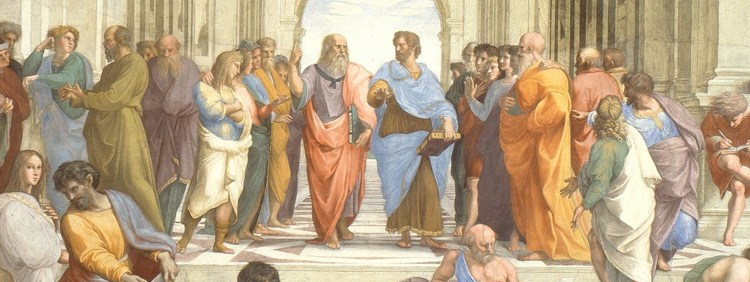Plato’s Republic is probably the most famous work of philosophy ever written. Nominally a work of political philosophy, it also deals with questions of epistemology and metaphysics, the ideal regime, and confrontations with the enduring problem of sophistry. The Republic is said to be about justice. Only partly. It is really a self-introspective work asking us to question “what kind of city do we live in?” Do we live in a tyrannical city like what the sophists are subtly peddling? Do we live in a just and peaceful city like what Socrates advocates?
In order to understand ourselves and the kind of city we want, we must first understand what kind of city we live in. Plato rejects the idea that force can be used to create the ideal city. Instead, we must use reason and persuasion to build the ideal city. Plato is a utopian, but his utopia is the product of reasonable persuasion rather than brute force and revolution. This is revealed to us early on and reiterated throughout The Republic: when we first meet Socrates he is stopped by a slave boy there is a tussle between force and persuasion: Well, then,” he said, “either prove stronger than these men or stay here.” “Isn’t there still one other possibility.” I said, “our persuading you that you must let us go?”
The opening sets the stage and tone of the dialogue: Reason and persuasion against strength and force. Strength and force are represented by the tyranny of the sophists. Reason and persuasion represented by the eloquence of Socrates. Reason and persuasion are what also lead to knowledge, wisdom, and friendship – as revealed when Socrates becomes friends with Thrasymachus and in how through the use of reason and persuasion Socrates and all around him come to know Truth. Therefore, Plato is also saying this: the tyrannical and unjust city is built on force; the just and ideal city is built on reason and persuasion. Freedom is about reason and persuasion. Tyranny is about force and manipulation.
________________________________________________________________
Hesiod, Paul Krause in real life, is the editor-in-chief of VoegelinView. He is writer, classicist, and historian. He has written on the arts, culture, classics, literature, philosophy, religion, and history for numerous journals, magazines, and newspapers. He is the author of The Odyssey of Love and the Politics of Plato, and a contributor to the College Lecture Today and the forthcoming book Diseases, Disasters, and Political Theory. He holds master’s degrees in philosophy and religious studies (biblical studies & theology) from the University of Buckingham and Yale, and a bachelor’s degree in economics, history, and philosophy from Baldwin Wallace University.
________________________________________________________________
Support Wisdom: https://paypal.me/PJKrause?locale.x=en_US
My Book on Literature: https://www.amazon.com/gp/product/1725297396
My Book on Plato: https://www.amazon.com/dp/B08BQLMVH2
Instagram: https://www.instagram.com/paul_jkrause/ (@paul_jkrause)
Twitter: https://twitter.com/paul_jkrause (@paul_jkrause)

